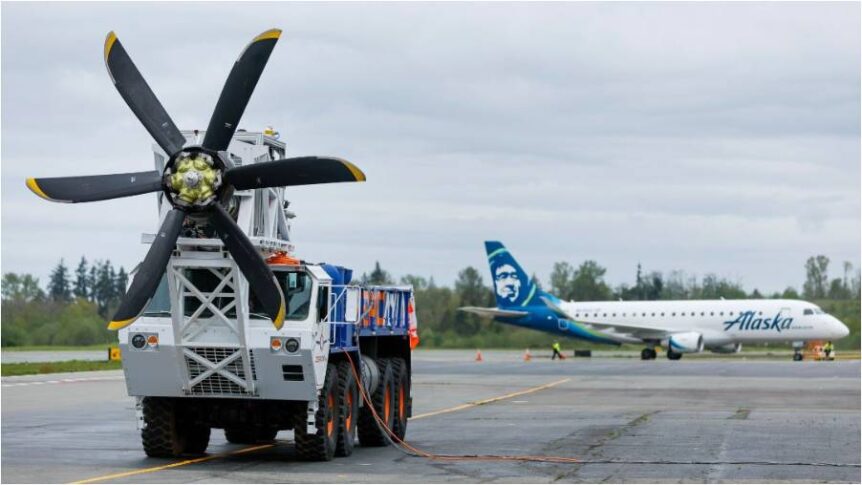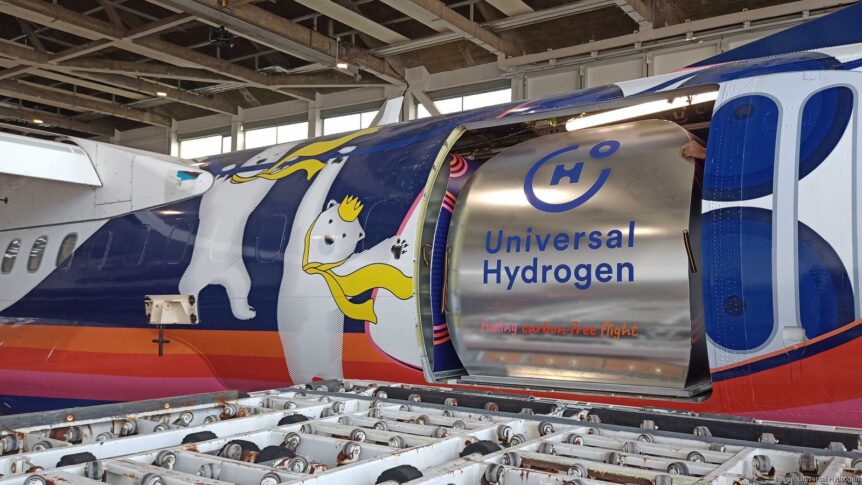ZeroAvia has taken delivery of a 76-seat Bombardier* Q400 airplane from Alaska Airlines. The craft could become a test bed for ZeroAvia’s modular HyperCore motors and hydrogen fuel systems. The Q400 will carry four times the number of passengers of the company’s current Dornier 228 twin-engine test aircraft – already having made five successful test flights. ZeroAvia proclaims, “The future of flight is renewable hydrogen,” and explains with a mission statement. “From 20 seat regional trips to over 100 seat long-distance flights, ZeroAvia enables scalable, sustainable aviation by replacing conventional engines with hydrogen-electric powertrains.” Two Dorniers, one in the United Kingdom and one in Hollister, California, are undergoing test flights (five so far in the Cotswolds in England) or awaiting FAA approval for such flights in Hollister. Acquiring the Bombardier brought a lot of attention to the Everett, Washington area recently, where ZeroAvia has a development center. Governor Jay Inslee came to inspect the project Q400 and prophecy about an increasingly …
Universal Hydrogen Certified, Ready to Fly
On February 7, 2023, Universal Hydrogen received a Special Airworthiness Certificate in the Experimental category from the Federal Aviation Administration. This will allow their DeHavilland Dash 8-300 to begin test flights. Universal boasts their craft will be the largest hydrogen fuel cell-powered aircraft ever to fly. Up to now, it’s been performing taxi tests and motor runups, getting ready for the big day. On a Mission Universal Hydrogen’s web site opens with this statement: “Our mission is to put aviation on a trajectory to meet Paris Agreement emissions targets by making hydrogen-powered commercial flight a near-term reality.” The coming flight tests are a major step toward fulfillment of that mission. Inclusion of the large hydrogen-carrying modules reduces passenger carrying capacity to 40 seats. But, the modules allow easy loading and unloading and “eliminate the need for costly new infrastructure, with any airport capable of handling cargo being hydrogen-ready.” Paul Eremenko, co-founder and CEO of Universal Hydrogen, explains, “We are simultaneously …


